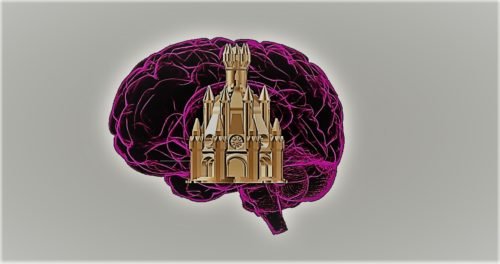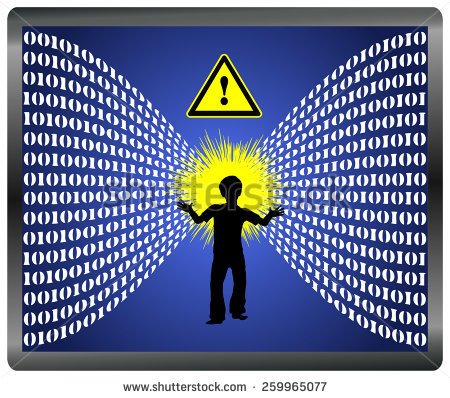So I'm going to be writing a lot on how handle living in the disinformation age, but there is a key concept that I have been developing that is going to form the basis for a lot of my future arguments so it's something I want to cover first. Inside your head is what I've decided to call your mind palace. Your mind palace is the structure that you've built up over time based on everything you "know." I put know in quotes because some of those things you know invariably are wrong. Each block of knowledge gets put somewhere in the palace. Some of it exists way up high as esoteric or trivial knowledge that is there but rarely needed. Some of it exists in the foundations of the palace and forms the base upon which the rest of the structure is built. Overall, this palace as constructed ends up as the core of your being. Who you are, how you think, what you believe, all of this is determined by the blocks that make up your mind palace.

But remember what I said, some of these blocks are wrong. If it's something trivial, no big deal, you replace it and move on. But what if that block exists in a load-bearing wall? Now you have to deconstruct everything on which that block depends on and rebuild that section with the replacement block. Mathew Inman of the Oatmeal solidified himself as one of my favorite people in the world when he wrote this comic that very eloquently makes my point. Go read it, it's definitely worth your time, I'll wait. Are we back or did you fall down the rabbit of his other work? That's ok I won't blame you if you did. Anyway, your brain treats new knowledge that says a foundational block of knowledge is wrong as an existential threat. And for good reason. Your mind palace is essentially a visualization of the structure of your brain. Changing something ingrained there means rewiring a well-worn pathway. Your palace may look very different once it's done. In a way, it may actually be an existential threat because the old you may die and a new you takes its place.
Less in the less metaphysical realm I have additional theory on why this is true. Your brain, amazing creation that it is, is also not equipped to handle the entire world. Lets take vision for example. What you see is not a straight feed from the world into your eyes and brain. Your brain takes the raw data, and then processes it into what you see. Did you know that your vision goes blank whenever your eyes move? How about the 12 dots illusion below:

The 12 dots are always there, even though you can't see all of them at the same time. If you want to think about your brain as a computer, it only has so much raw processing power. It uses sub-routines and shortcuts to actually get around the bottlenecks. Often times what you see is what your brain assumes should be there. I touched on this a bit earlier when I wrote about habits but once your brain can offload a task to a sub-routine it does so to save processing space. This adaptation is likely key in how we are able to have higher level thinking instead of all of our brain processing being consumed by sensory input.
So to now to relate this to how your brain processes information. When you are given a piece of information your brain does a quick check against the index of your knowledge. If the information more more or less agrees with what's there, it's accepted and then added on as a new block in your mind palace. If it doesn't it's evaluated against the block it conflicts with, and all of the other blocks that reinforce that block. Unless there is enough compelling evidence to replace the block, the new one is rejected. The problem is you are using the existing block and the blocks on top of it to evaluate that new information so it's already starting at a disadvantage. And your brain isn't keen on having to tear stuff down and rebuild all the time, that's a tremendous waste of effort, so the deeper the block in conflict the higher the bias towards rejection. Practically this makes sense. You can't evaluate every single bit of information in totality, you would be entirely overwhelmed if you did, so you presort information and summarily reject a large portion that doesn't seem credible enough to evaluate.

This is now a massive problem on today's internet. I do not believe most people's brains are capable of processing the torrent of information thrown at it. When there were a few sources of information we generally gave it a lot of credibility and if it told us something that conflicted with our knowledge we had more space to process it. Now there are functionally infinite sources of information and practically every idea represented. Much of this information is not accurate. But there is just so much coming at us at all times we steer ourselves to the voices that tell us what we want to hear, what reinforces our mind palace, simply to keep ourselves from drowning in it. It's easy to sit here and shit on Trump supporters who refuse to believe they were influenced by Russian interference and people that listen to Alex Jones. But we have to understand if we want to be able to reach them that they are people whose mind palace is constructed to certain world view and they are excited that for once they are finding validation instead of having to sink in a torrent of doubt. Maybe this is a bigger problem for some rather than others, but it is something that we ALL are challenged by, and it's something that will stand in the way of human society until we learn to fix it.
Philosophically I believe in the idea of an objective truth. Every fact and bit of information ultimately proves valid or invalid. Some of that validity does depend on people's belief about certain things (like whether things such as equality or utilitarianism are moral or immoral) but most things are objectively correct or incorrect. The further each one of us deviate from that objective truth the harder it will be to find unity and understanding amongst humanity. Ultimately, one of our obligations as a human is to seek to bring ourselves and others as close to that truth as possible. We can't do that however if we don't learn to fight back against the biases that lead us from it. I hope to explore that more in the future but I first want all of you to think for yourselves how you can do it. We all have different mind palaces and different ways and abilities to process information. The solution that works for you may in the end be very different from what works for me. As much as I try to seek truth I am as much a slave to my understanding of the world as anyone.
